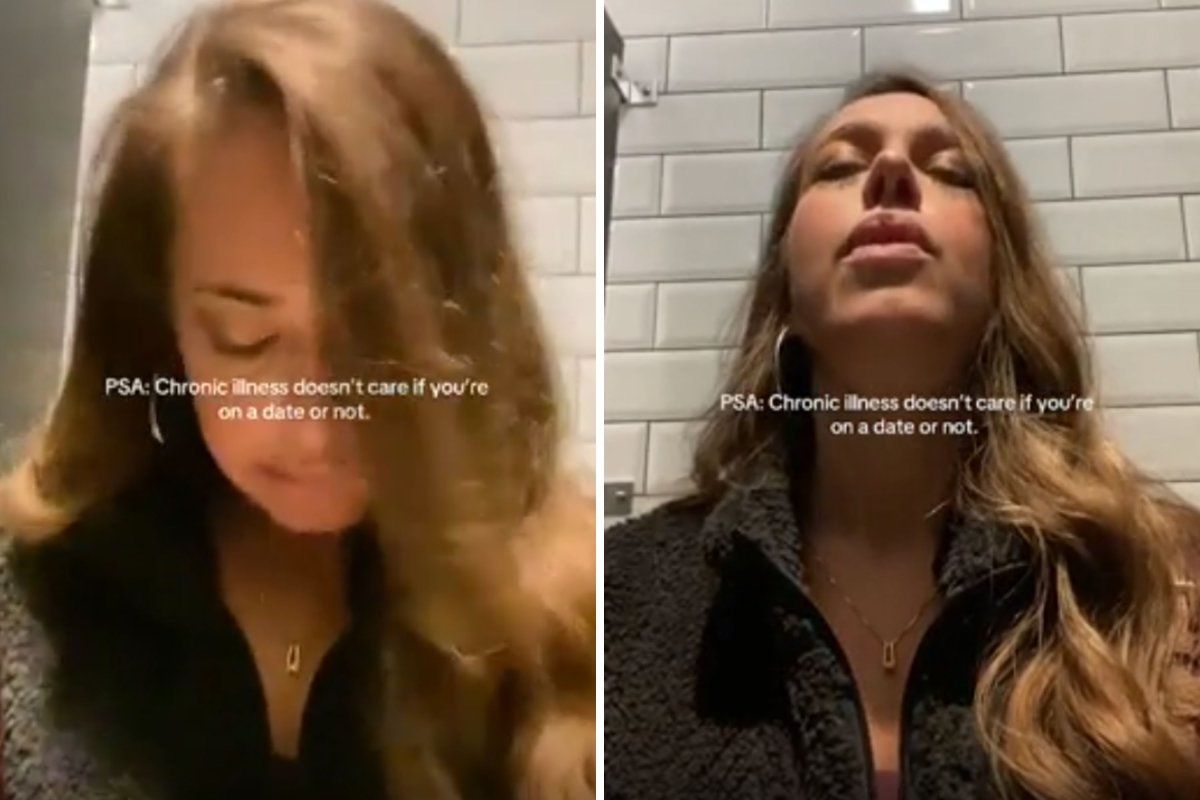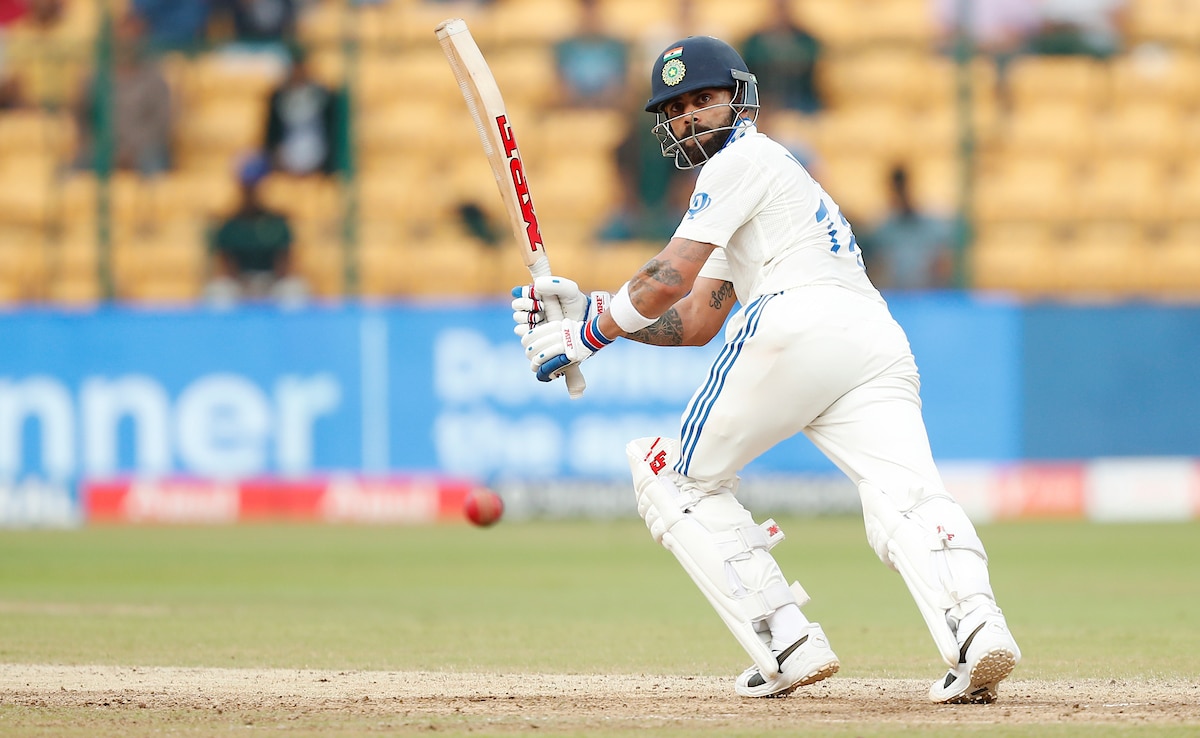A woman has shared a powerful message about chronic illness on TikTok.
Kaleigh Schmidt, 29, posted a video of herself navigating a spasm episode during a lunch date. The video’s message? Chronic illness doesn’t care if you’re on a date. Since posting the video, it has received over 80,000 likes and over 450 comments. Schmidt spoke to Newsweek about her journey dating with chronic illness, and how she balances new relationships with health challenges.
“[Public service announcement]: Chronic illness doesn’t care if you’re on a date or not,” she captioned the video. “Dating with chronic illness has many challenges.”

@kaleigh.schmidt/TikTok
Schmidt explained the situation to Newsweek, recalling how she used a pre-arranged “code word” with her date when she began to feel an episode coming on.
“On our first date, my date came up with the idea of using a code word or slogan when spasm episodes occur. On this particular date, we were grabbing lunch…when I needed to excuse myself from the table,” she said. “We had just started eating when I could feel an episode coming on. I used our code word and excused myself.”
Schmidt said that communication and vulnerability about her chronic illnesses in dating is still relatively new to her. She was diagnosed with Lyme disease in 2021, functional neurological disorder in 2021 and postural orthostatic tachycardia syndrome in 2024.
As she navigates the complexities of dating with chronic illness, she grows even more resolute about the importance of communication—and dating people who are receptive to it.
“The response is always different when I explain the challenges of living with multiple health conditions,” she said. “My date also lives with chronic illness, so there was a new level of empathy and understanding with this particular person and overall experience.”
Schmidt said her conditions are largely invisible—something she hopes others can better understand on her dating journey.
“Dating can be scary and intimidating because of the vulnerability, uncertainty and unpredictability of symptoms, responses and outcomes. It’s challenging, but it’s possible,” she said. “Sometimes, we feel the need to hide certain parts of ourselves out of fear of being judged or not feeling good enough. Don’t hide who you are; your authentic self is beautiful and should be celebrated.”
Her advice for those navigating similar situations? Focus on the process, not the outcome.
“Stop focusing on the end goal and start focusing on what you’re learning through the experience,” she advised. “What is dating teaching you about yourself? How is it helping you grow? It’s not only about finding love but learning to accept and love yourself exactly as you are, with the circumstances you’ve been given. Your circumstances don’t make you any less worthy of being loved.”
Her date, who lives with multiple sclerosis, echoed Schmidt’s sentiment about chronic illness in dating.
“Chronic illness is rarely visible, but it can be hyperactive when agitated, like being nervous, meaning symptoms escalate at points of high inflammation,” he told Newsweek. “I would ask you to imagine what it’s like to actively try to re-learn something simple that your brain has known for years, like memory or how to drive a car, walk, shower or how to get home from work.”
Given all of their reflections, Schmidt’s message is clear: chronic illness doesn’t pause for love, but it doesn’t have to stop you from finding it either. The key is empathy, communication and embracing both health journeys in your relationship.





